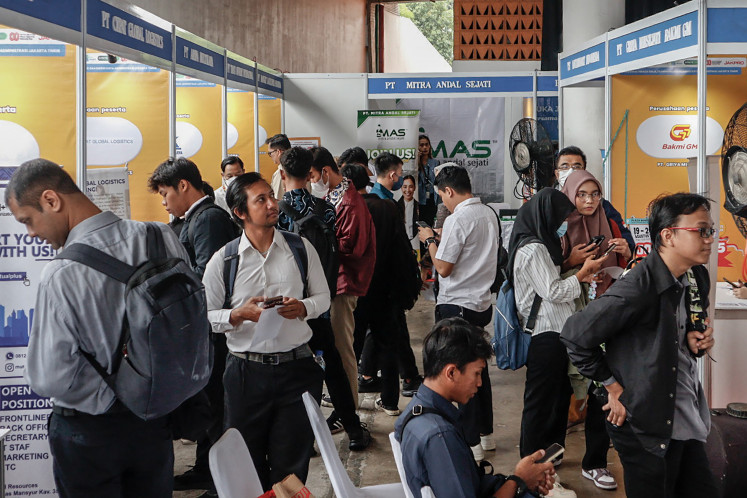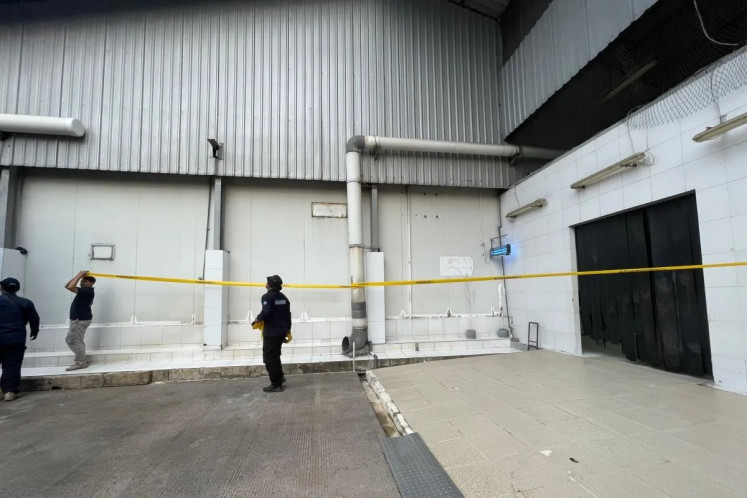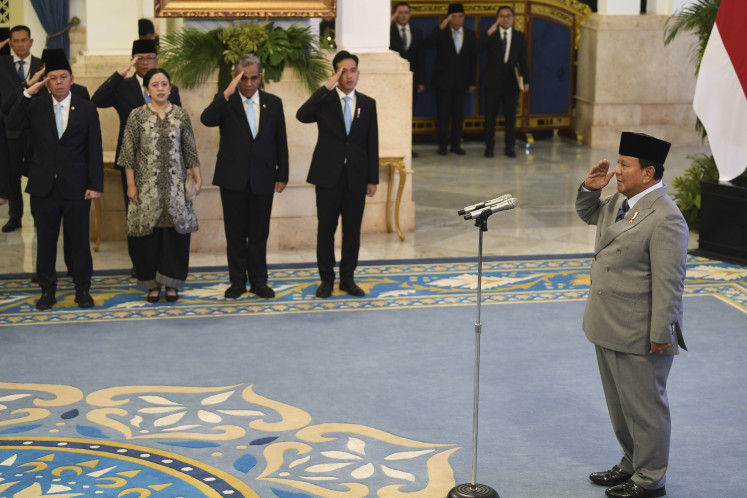Popular Reads
Top Results
Can't find what you're looking for?
View all search resultsPopular Reads
Top Results
Can't find what you're looking for?
View all search resultsTax amnesty should be part of tax reform: Analysts
Change text size
Gift Premium Articles
to Anyone
A
n ongoing debate by lawmakers over a proposed tax amnesty should be part of the country’s efforts to reform its taxation system and not just an effort to create an instrument to reach tax revenue targets, experts and business people say.
"If the tax amnesty is established as a means of getting a new tax system, I think we have the opportunity for tax reform, but if its only goal is [to achieve a tax revenue target], we must reject it now," the executive director of the Center for Indonesia Taxation Analysis (CITA), Yustinus Prastowo, said in Jakarta on Tuesday.
Therefore, the government and the House of Representatives must stress that the main purpose of the policy is to harmonize taxation regulations, strengthen the institutions and to make the tax authority more credible and accountable.
"With a heavier workload, it can also be an opportunity to strengthen supervision," he added.
Yustinus said sees that President' Joko "Jokowi" Widodo has a vision and willingness to reform taxation, but the institutions and ministries fail to translate it at a practical level. "We all are now stuck in a discourse to pursue a tax revenue target and nobody thinks about a thorough tax reform," he said.
Indonesian Employers Association (Apindo) chairman Sukamdani Hariyadi said the association had been recommending a tax amnesty policy since the administration of president Susilo Bambang Yudhoyono.
Moreover, Indonesia's liquidity is in severe condition as its loan-to-deposit ratio is 90 percent, making the real sector unable to expand because of tight liquidity.
"A tax amnesty will provide the right momentum, although potential additional tax revenues of Rp175 trillion (US$13.37 million) from a tax amnesty is too ambitious. We estimated Rp 70 trillion to Rp 80 trillion can be obtained from the tax amnesty," he said.
Arman Imran of the Tax Avoidance Division at the Finance Ministry’s directorate general of taxation recommended three solutions in tax reform, including data integration between institutions and strengthening tax regulations.
"Currently, the mindset of our tax regulations is only on taxpayer services, whereas compliance is also necessary, especially related to tax evasion," he said.
The House has authorized House Commission XI overseeing banking and financial affairs to start the deliberations over a tax amnesty bill.
If the bill is passed into law, the government can offer tax discounts to individuals and companies who want to declare their untaxed wealth. The policy is expected to persuade Indonesians who parked their wealth overseas to bring it back home to Indonesia.
This year's tax revenue target is Rp 1.36 quadrillion, 28.2 percent higher than the Rp 1.06 quadrillion achieved in 2015. (bbn)










